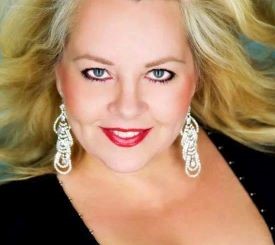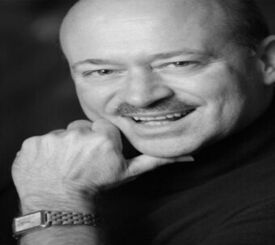Vocal
Vocal Preparation
The Dilemma of Finding the Right Song and Track
1. About You
- What is your voice type? Soprano or Alto
- Once voice type is determined what is your exact range?
- What exact notes vocally can be used when singing a song?
- What style of music are you looking for. Pop, Broadway, Jazz, Classical, etc.
2. About the Music
- Once the voice type, range, and style are determined, you may now start
looking at music that is available to satisfy your needs.
Where do I find the music?
A. KARAOKE TRACKS-Available on iTunes or Musical Creations. Most music would need to be edited down into the 1:30 format. These tracks will also usually have background vocals on them, and are built in the original format of the song. As a result, you are limited to editing what is already there. (Musicalcreations.com or itunes.com) Prices range from $.99 to $12.95.
B. PREVIOUSLY BUILT CUSTOM TRACKS-These are custom built tracks from the past that are now available for purchase. They have been built with live players in the 1:30 format and are built for competition. Meaning they make use of creative intros, modulations, and big endings. All the things needed to score extra points in the talent competition. (See AVAILABLE TRACKS) $150-$450
C. CUSTOM TRACKS-These are tracks that are built from the ground up for the individual contestant. We will normally sit at the piano and figure out the exact format, key, and arrangement to be built. Once all of these choices have been finalized, we hire the musicians, go into the studio and record the track. (see CUSTOM TRACKS) $450-$1600
3. Perfecting the Vocal and Adding the Blocking
- Once the song and track have been decided upon, you are ready to start perfecting the vocal. We will learn all the notes, and modify anything vocally to best suit the individual singer.
- When the vocal work is finished, the number must then be blocked. This is how you will present the song and the movement that you will use in your performance.
The COMPLETE PROCESS if you already have your song and wish to perfect it....
- I will first listen and watch you perform the song.
- I will offer my observations both vocally and on the blocking.
- We will clean up and perfect all vocal aspects of the song. I will do an analysis of specific problems and assign various exercises to correct them. Areas we will look at are:
- Pitch
- Phrasing
- Pronunciation
- Musicality
- Style
- Vowel Sound Analysis
- Any rewrites that are needed on the vocal line
You will work in a very comfortable environment with a good system sound and cordless mic. We will also record the session and I will either email this MP3 to you, or if time permits, transfer to a CD at the end of the session for you to take with you.
To watch talent rehearsal of vocal selections during lessons click on link.
*Never Enough-https://youtu.be/qrDGV9kp6JU
*I Who Have Nothing-https://youtu.be/CNURaSM4BSE
*God Bless America-https://youtu.be/J6fLweXo7AA
Vocal Presentation and Blocking
Vocal blocking is the specific movement that a contestant uses when presenting a song on stage. Starting with exactly when and where she will move during the presentation, as well as the individual arm, hand, and facial expressions to be incorporated with the presentation. It's an attitude that must be projected to the audience and judges that lets the movement become a partner to what is happening vocally on stage. These two MUST work hand in hand to make the performance complete. The amount of blocking that an individual is capable of doing comfortably under pressure must always be taken into consideration. This many times proves to be a fine line. An overblocked, overstaged presentation can detract from the performer's overall effectiveness. I will evaluate how much blocking a person can handle and how much she wants, then build from there. She is the one performing the number and must feel totally at ease with what she is doing on stage.
Kim Kircher has worked with me for over twenty years on vocal blocking. She understands the pageant world and knows what specific blocking will and will not work for each individual she works with. She is excellent at making the average contestant, with little movability, look as if she were a seasoned performer.
About Kim Kircher
Kim has been performing for over 30 years in many venues throughout the Kansas City area, including Theatre, Cabaret, Recording, and her appearances with live bands around the state. Her pageant experience is also extensive. As a contestant, she was 4th RU to Debbye Turner at the Miss Missouri Pageant. She won talent all of the four years that she competed. In 1995, Kim released her first CD produced in Nashville, TN titled "Red Ribbon Diaries." It was created specifically to benefit AmFAR and sold out within six months. Music is not Kim's only love, however. She recently just completed a degree in medicine with a DNP (Geriatric Internal Medicine Hospitalist) degree and works full time at an area hospital in Kansas City. (A smart and talented pageant gal!) Kim can be booked for sessions by contacting Bill.


NEED HELP IN SELECTING A TALENT NUMBER?
If you send Bill a video of yourself singing through the final two or three choices under consideration, he will be happy to offer his opinion. He will also then send you other possible selection options that he feels will fit your voice and style. NO CHARGE
If you have met with Bill and worked on your song IN PERSION at least once he can do a thirty minute BRUSH UP to refresh the work. He DOES NOT do on line vocal sessions. (COST-$60) If desired, he is happy to provide you with a couple colleagues that do ON LINE work.

